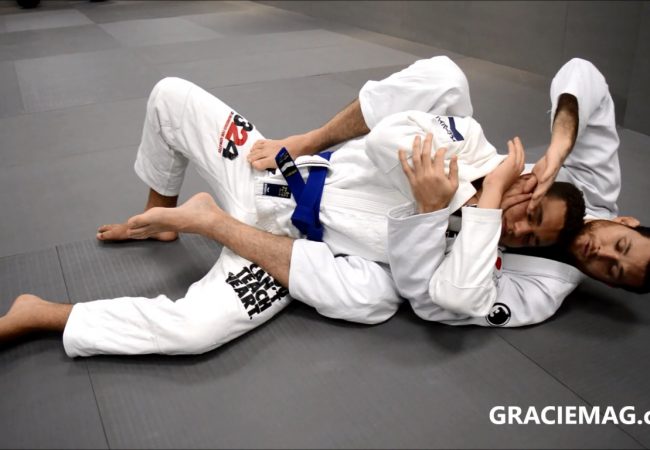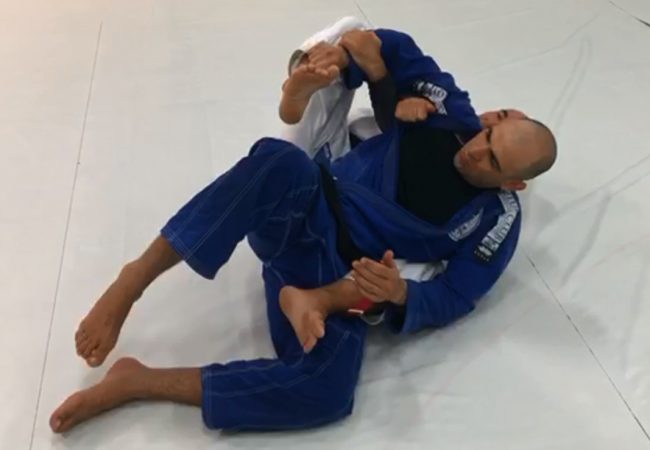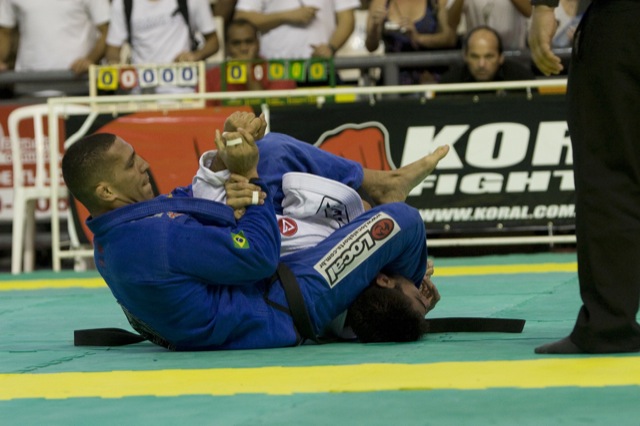
The champion Ffiona Davies stabilizing the mount in London. Ane Nunes/AJP
1. The mount is the supreme position, from which the BJJ player exerts ample control over their rival — and can even give themselves the luxury of resting without pressure from the ref to attack. It’s from there, with full view of the match, that they must work to finish. But it’s normal for a white-belt to relax and lose the position — so the first commandment is: adjust your weight on your opponent’s hips to they can’t upa and send you flying.
2. Upon mounting you must have this in mind: I want my opponent to carry all my weight. If you are poorly seated, sustaining your weight with your knees, you are giving your opponent space and time to breathe. Another thought: their hips cannot be allowed to move.
3. BJJ is balance — always. On the mount, like in other positions, it’s necessary to stay in constant balance, which means less risk. To exercise your balance, strive to practice your mount stability since your warm-up. Sit down without giving spaces and consult your teacher and check whether your knee, feet and hooks are good.
4. If you are attacking, you are keeping your opponent busy — and worried. That is why it’s necessary to repeat and repeat until you have one or two effective attacks. Remember that if you attack the collar or the neck, your opponent will need to defend with one of their arms, which opens up room for armbars. Also study the kata-gatame — the favorite move of nine out of ten MMA fighters when they reach the mount.
5. Attention to your opponent’s shoulders. Most mount escapes are set in motion by shoulder movement — necessary for the bottom fighter to get up, turn on their side, counter-attack, etc. Keep your opponent’s shoulders always on the mat, foiling their posture and escape.
6. Double attacks, always. From the mount, the guard, the back, the double attack is the best way to thwart the defense — and the way to avoid the obvious attacks that anyone will see coming. When you mount, try to study thoroughly the transition between chokes and armlocks, between chokes with the hand and the kata-gatame, and be a fearsome fighter on top. Always have a plan B!
7. Watch videos to study how the great specialists mount — with or without the gi, and even in MMA. Watching the best do it can take you a long way.
8. Having an effective mount does not mean you need to sit on top of your opponents like a stone. Take note of movement on top and how to keep them tired. Use your hands for support, throw your head forward and move your legs intelligently when your opponent pushes you. But don’t forget the bigger goal: to keep the mount.
9. One of the most common alternative plans from the mount is to allow your opponent to spin and give you their back, so you can more easily squeeze their neck. Keep this move under your sleeve.
10. When you reach the mount on the street or in a real-life scenario, remember the advice of the old masters: watch out for the bite! A dominated aggressor can get desperate and use their teeth. Use your shoulder on their chin to get yourself away from their mouth.




